#indonesian literature
Photo
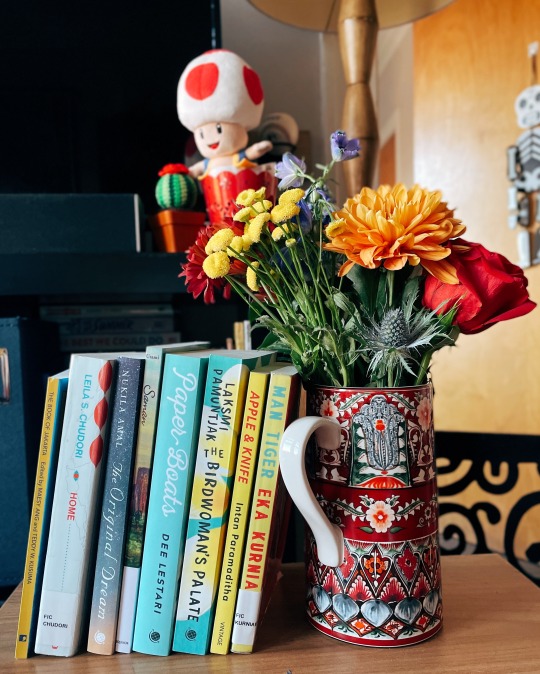
When people set out to “read around the world,” too often they neglect Indonesia, despite it being the fourth most populous nation in the world, with more than 270 million inhabitants. So let’s fix that, shall we?
I’ve done the research and compiled a list of nine wonderful books translated from Indonesian, or bahasa Indonesia, the official, national language of Indonesia. Check it out!
#indonesian literature#books in translation#translated literature#women in translation#book stacks#book recommendations#book riot
103 notes
·
View notes
Text
“Yes, he loves me, but for me it is a great misfortune. For he thinks that because he loves me he is free to torment me, takes full advantage of this imaginary privilege. Almost every day comes a letter tormenting me to death, but then of course there comes another which is meant to make me forget the first; but how can I forget it? He always talks in riddles; one can’t get a candid word out of him. It is possible that what he wants to say cannot be written, but then, for heaven’s sake, he should stop it altogether and write like a sensible person. He doesn’t torment me deliberately, for he loves me, I know, beyond all measure, but he ought to stop tormenting me and making me so miserable with his love.”
-letters to felice, franz kafka
#letters to felice#franz kafka#franz kafka diaries#franz kafka quotes#english literature#indonesian literature#classic literature#literature#literature quotes#book quotes#books#dead poets society#poetry#dark acamedia#light academia
28 notes
·
View notes
Photo
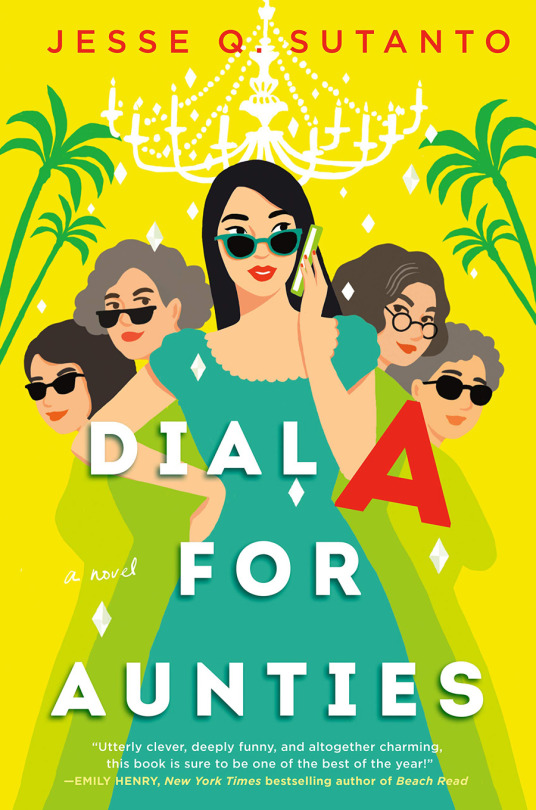
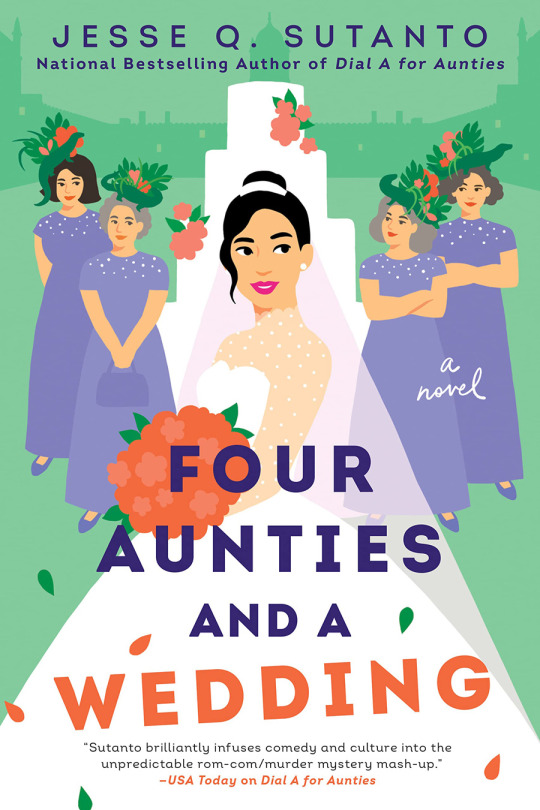
Vikki Chu’s illustrated book cover for Jesse Q. Sutanto’s Dial A for Aunties and Four Aunties and a Wedding.
#vikki chu#jesse q sutanto#four aunties and a wedding#book covers#singaporean literature#indonesian literature#british literature
3 notes
·
View notes
Text
[June 9th, 2022] Seni Merayu Tuhan (The Art of Persuading God) - 120/224
We can trust a barbershop to do things with our hair without us looking at it. Why? Cause we believe in the barber. From "Lesson of Faith from a Barbershop" chapter, we realized that we can put a belief in humans, a mere creatures. There is no reason for us to not believe in the almighty God, The Creator. Sometimes, we might not understand why do we live this way? Why is it so difficult? Why are we like this? Things we want to reach are out of our sight, we run and run, but it is an endless road. But believe that God knows the best, that we don't know anything but keep loathing. Look, we won't know how many times God has saved us from the danger without us knowing. God gives us the air to breathe, water to drink, and sunlight to grow the crops for us to eat. We can't count on God's mercy, we can't.
__
"Whoever know themselves, know their Lord." is a quote by the Sufis, also the opening sentence of the chapter "Seeing God on the Mirror." The book explains it in a general way when I expect more explanation about that Sufi quote. So, I found it deficient. Nevertheless, this chapter taught about how we should look within ourselves before looking at others, for us to fight our lust, the demon inside, first. Do our best to follow Prophet Muhammad SAW.
__
Arrogant is one frightening behavior. It isn't just showing off wealth and achievements. The way we, as a human, tend to feel better than others, underestimate others, feel the rightest, reject the truth, and stop ourselves from learning are also counted as unconscious pomposity. Sometimes, we want to win, but the win doesn't mean glory. So that conceding doesn't equal loss. That's what "Giving in, Giving in to God [1]" told us. There are times in an argument when we believe we're right, trying to inform others the truth, but they refuse, no matter what.
Arrogant. Goodness, I once experienced arguing on Twitter with someone because I said something like, "because Islam in Indonesia is mostly ritual without understanding the concept, people pray and such but ignore the essence of Islam, they keep feeling the rightest and despise the others." We keep arguing. There is this saying, "the sane one back down." However, we can't be silent forever, right? (Or maybe I am the one who's actually insane). Or maybe, it's just not my place to speak from the beginning. Who am I to speak anyway.
In the chapter, there's a sentence like this: "Fanaticism towards a certain opinion isn't Islamic teaching. We were forbidden to be fanatic on one opinion because this attitude resembles the devil's teaching." How to be more controversial? Considering the growth of the caliphate movement in Indonesia. Fanaticism… Ehm.
__
"I Don't Know!" That word, yes. I remember back then when I was in university, the lecturer allowed us to write "give up" to the question that we didn't know the answer or when we were stuck with the calculation. We will still get some mercy points by writing "give up" rather than writing nonsense (The questions are essays), which results in zero points. The reason? Because by writing it like that, we admitted that we don't know. It requires courage and self-awareness. Not all people are brave enough to say "I don't know," as if saying it would be a shame and make us worth less.
__
"It's ok to hate, as Long as We Follow the Terms and Conditions." What are the ToS? You'll find it in the book, yeah. The main thing is even God has something God doesn't like. One of the conditions is that we can hate a person because of God, not to fuel our lust. I often heard the Buddhist teaching, "sabbe satta bhavantu sukhitatta," may all beings be joyful and secure (If I am not mistaken, I searched it tho). It was Buddha's discourse on loving-kindness for all beings. Based on these only, I think all religions are based on love. Even hating something should be because of love as well. What are we without love?
__
In the "Humanity Before Diversity" chapter, The content doesn't really speak about the relationship between humanity and diversity. It is more about how God upholds humanity; That God puts humanitarian value a lot on the religion's rules and practices. Where's the title come from? It's from a book title, which probably explains more about its relation with diversity. I don't know, only my assumption, haven't read that yet.
__
It said that "The Greatest Worship: Giving Happiness to Others."
But how if the way to make someone happy is through a lie? The happiness that is given is all lie. That doesn't sound right to me. I always thought it's better to die than to conceal a truth? Which one is better?
__
"A Syar'i Crazy Rich" more or less explained how wealth is seen in religion. We often hear to live with modesty. Also, the Sufis are known to let go of any attachment to worldly matters. One of them is wealth. However, sometimes, we need the power to implement the religion's teaching. We need the power to do good deeds, to lift up the economic system, to get a better education, etc. Pursue the world, as long as it doesn't make you blind.
__
Here, in "Tretan! [2]" chapter, I once again found one of my favorite quotes. It is by Imam Ali, son of Abu Thaleb. It said, "A person is either your brother in faith or your equal in humanity." I sometimes wonder how here in Indonesia (In my opinion, of course), the power lies in the majority. Let alone equal stand in humanity, brother in faith is not even fully implemented since there are still many disputes within.
______________________________________________________________
At this point, I feel like I am writing too much. I don't have any words in the end cause I've tired out. It was meant to be a casual reading log, but I end up thinking too much and writing something like a resume for each chapter. Geez… What am I doing? Anyway, the next one should be much shorter. I'll just write anything that comes in mind when I read things. No analysis, no further thinking.
NOTE:
[1] In the original language (Indonesian), It was actually a pun with the same meaning more or less "Ngalah Itu Ng-Allah." In a right place, conceding is one way to submit to God.
[2] "Tretan!" is like a Madurese's "bro!" A way to call someone. Madurese: A local language in Indonesia where the writer came from.
#faith in god#book log#book review#currently reading#literature#book tumblr#books & libraries#non fiction#seni merayu Tuhan#sufism#tasawuf#moslem#indonesia#Indonesian literature#Islam#islamic life#readinglog#reading log
4 notes
·
View notes
Text
Okay this book is so good and i can’t stand to not yap about it. I’m on page 410/724 so this is my halfway reading log for Jejak Langkah (aka Footsteps) by Pramoedya Ananta Toer.
This is the third book of Buru Island tetralogy. in this book we continue to follow Minke’s journey on his fight against Dutch occupation in Indonesia. The story started with Minke went to Batavia (then Jakarta) to attend the medical school STOVIA. The few first chapters of this have so many twists and turns; Minke being assaulted for being a Javanese but wearing Dutch’s attire, his meeting with Mei then their wed and her death, Minke’s dad’s view on him being known by the Governor-General, him creating organization but failed because it was focused on the priyayi aspect so it spark classism, his magazine and newspaper, and the rise of Budi Oetomo; organization by STOVIA students that he somehow help to initiate but he criticized and not fully agreed with.
He talks about classism a lot in this book, he even slander his own background (re:being born and raised in Javanese bourgeois in power family). Being Javanese myself I haven’t really thought about this issue that this really scratched my brain. The scene when Minke sarcastically asked Sadikoen, a STOVIA senior that also a BO member that he should talk to him in kromo because he keep bringing up his priyayi/bourgeois mindset really awed me. We do have tier of languages to talk with older people (we called it:Krama). I saw it as a part of our culture and respect, and there's nothing wrong about that.
While it is true that it is an expression of respect, this also shows how classist my society is, because you still need to bow deep and talk in Krama to people in power, even though they’re not older or not part of your family. While us peasants need to show them respect, they eventually look down on us because we show them respect. So it is somehow goes around, and it will not break if no one break the system.
And Minke is out there with his Medan, confronting the idea.
p.s. this is so shallow to be called a review or such and this post don't do justice on this book so please read it yourself.
p.s.s. I wonder who Pak Pram took the inspiration from though. I would love to know who Real Life Minke is.
#reading log#book review#bookblr#Pramoedya Ananta Toer#Jejak Langkah#Footsteps#Indonesian literature#literature
1 note
·
View note
Text
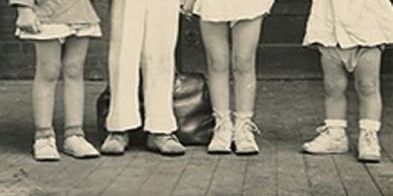

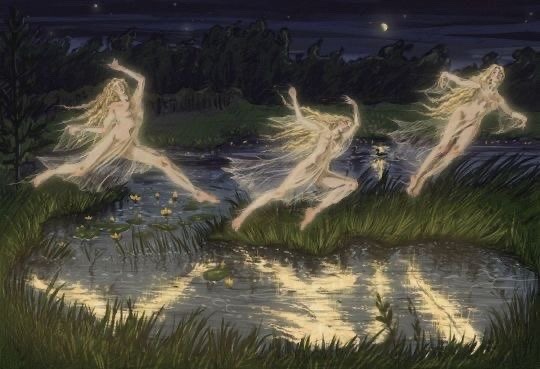

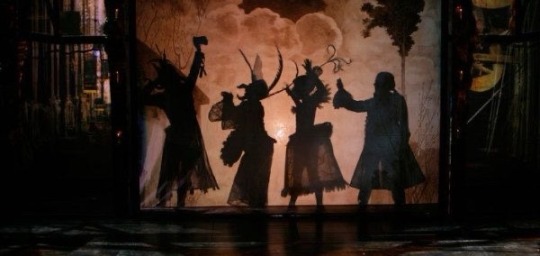

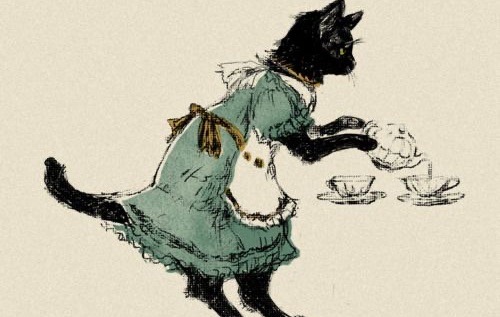



Recently read: Kita pergi hari ini - Ziggy Zezsyazeoviennazabrizkie
Summary: Mi dan Ma dan Mo tidak pernah melihat kucing seperti Nona Gigi. Tentu saja, mereka sudah pernah melihat kucing biasa. Tapi Nona Gigi adalah Kucing Luar Biasa. Kucing Luar Biasa berarti kucing yang di luar kebiasaan. Nona Gigi adalah Cara Lain yang dinantikan oleh Bapak dan Ibu Mo untuk menjaga Mi, Ma, dan Mo ketika keduanya keluar rumah mencari uang. Sebab di Kota Suara, semua uang yang tersedia di dasar laut sudah diambil oleh para perompak, uang di bawah tanah diambil oleh para perampok, dan uang di ranting pohon diambil oleh pengusaha kayu yang jahat.
Nona Gigi mengajak Mi dan Ma dan Mo dan Fifi dan Fufu—anak kembar Tetangga Baru bertualang mengunjungi tempat-tempat indah. Mereka naik Kereta Air, bertemu Kolonel Jagung, bermain di Sirkus Sendu, dan menyaksikan kemegahan Kota Terapung Kucing Luar Biasa.
Kita pergi hari ini. Ke tempat-tempat indah dalam mimpi-mimpi anak-anak baik-baik.
Rate: 4⭐️
1 note
·
View note
Text
The thing is, I have this huge compassion for others but not myself until it overflows and realizes I have nothing to fill my own cup with
#chaotic academia#dark academia aesthetic#literature#dark academic aesthetic#books & libraries#yearning poetry#indonesian literature#dark academia#poems and quotes#srikandiescapism
1 note
·
View note
Text
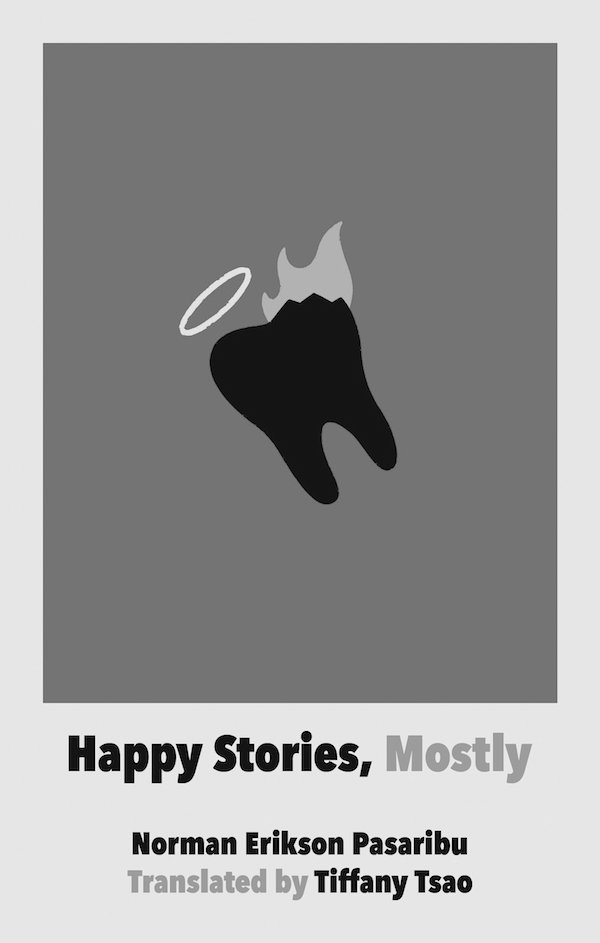
Currently Reading
Norman Erikson Pasaribu
HAPPY STORIES, MOSTLY
Translated from the Indonesian by Tiffany Tsao
#reading#Norman Erikson Pasaribu#Feminist Press#Tiffany Tsao#Indonesian writers#Indonesian literature
0 notes
Text
Pines scatter in the distance,
as day becomes night,
branches slap weakly at the window,
pushed by a sultry wind.
I'm now a person who can survive,
so long ago I left childhood behind,
though once there was something,
that now counts for nothing at all.
Life is but postponement of defeat,
a growing estrangement from youth's unfettered love
a knowing there's always something left unsaid,
before we finally acquiesce.
Chairil Anwar #
0 notes
Photo
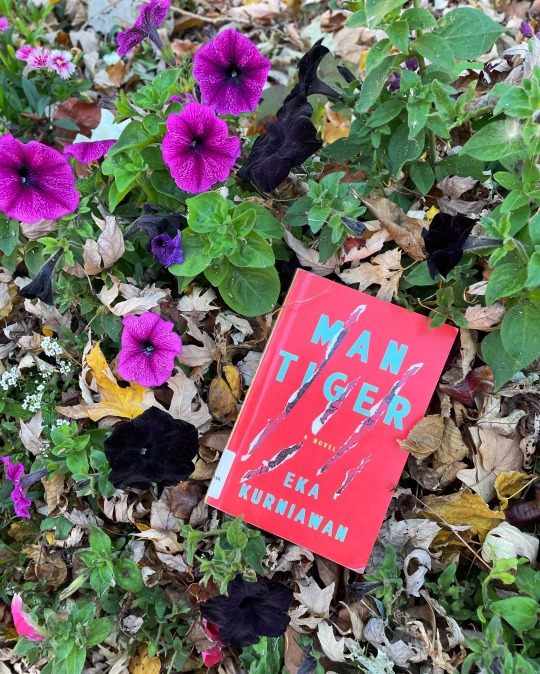
Man Tiger by Eka Kurniawan, translated by Labodalih Sembiring, is a surrealist fantastic novel that starts with a murder: Anwar Sadat has been killed by young teen Margio, who bit through his neck, and claims that it’s the tigress inside him to blame.
I couldn’t put this one down. It skips through time to unfold the mystery of why Margio did what he did, of where the violence blossomed from. It’s a story of an internal generational rage, of masculinity and restraint, and of the ways heartbreak, sex, and violence across several town families brought Margio to where he is.
I wasn’t a huge fan of Kurniawan’s most famous book, Beauty is a Wound, so was pleasantly surprised how much I adored this one, particularly because the women in this one are given real complexity and depth. It’s so poetic but so tense, and it all builds up so explosively into that ending.
Read on for more Indonesian books in translation.
Content warnings for violence, domestic abuse, child death, terminal illness, sexual assault, substance abuse.
15 notes
·
View notes
Text
And nothing is sadder than sending a letter to a doubtful address;
-letters to felice, franz kafka
#letters to felice#franz kafka#franz kafka diaries#franz kafka quotes#english literature#indonesian literature#classic literature#literature#literature quotes#book quotes#books#dead poets society#poetry#dark acamedia#letters
19 notes
·
View notes
Text

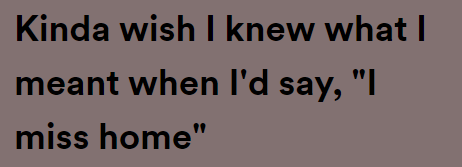




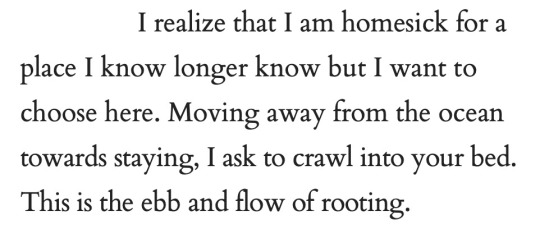



i don't know which one feels more like home. (the uncertainty or the chaos)
fireworks by jaedha godwin, pinterest // split by niki // post by @haykhighland (infinite thanks for letting me use your post // special by sza // images from pinterest // post-glacial by tori mccandless // "saga (i won't forget you when i'm gone)", andrei voznesensk - translated by @metamorphesque // split by niki // image from pinterest
#immigrant daughter#immigration#filipino#armenian literature#homesick#on location#on conflict#on the city#on growing up#poem#web weaving#web weave#spilled poetry#spilled thoughts#web weavings#webweaving#writeblr#indonesian music#filipino posting#filipino music#sza#city aesthetic#aesthetic#writing aesthetic#writing#poetry
833 notes
·
View notes
Text

not me crying from my assigned weekly reading at university 😭
0 notes
Text
The Romance of Inao
The story of Inao originally comes from the Javanese and Malay Panji stories, centered around Prince Panji and Princess Kirana.
The stories have spread throughout SouthEast Asia and they have their own versions of the tales with different names for the characters.
I am going to focus on the Thai dance drama version where Prince Panji is called Inao.
Brace yourselves, this one is long and complicated and a lot of information is not easily available in English so it's not as complete as I would like it to be but here goes.
Inao is the son of the king of Kurepan

Bussaba/Kirana is the daughter of the king of Daha
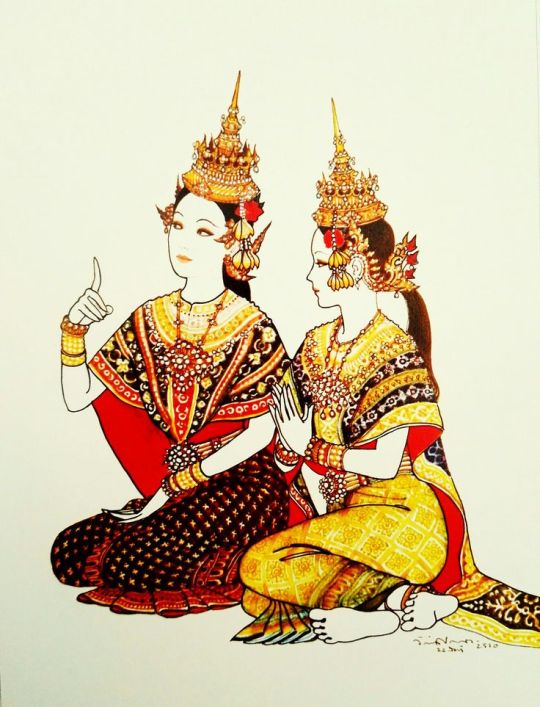
At birth they are betrothed to each other
When Inao is 15, his grandmother passes away in the kingdom of Manya.
The kings of Kurepan and Daha send him to represent them at the funeral.
In Manya, Inao meets and falls in love with princess Jintara.
After the elaborate funeral celebrations are over, he wishes to stay in Manya with Jintara.
But his father orders him home and Inao leaves, after sending a lovelorn letter to Jintara.
At home in Kurepan, his father decides to speed up that marriage! (Clearly sensing trouble.)
But Inao refuses to go along with this plan and goes off hunting.
Having left the palace, he takes on a disguise, along with a few loyal followers and after an encounter with a bandit, he acquires two captured princesses.
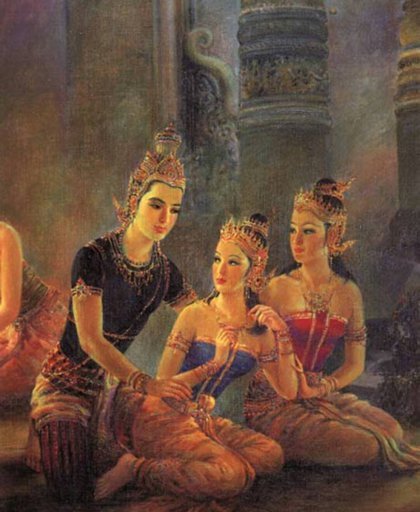
They all head to Manya where the king happily welcomes him and Inao makes Jintara his wife.
Jintra, clearly drunk on love, decides to magnanimously invite the two princesses to be Inao’s concubines (polygmy was standard in this time.)
Inao’s father orders him to return home and marry Bussaba but Inao send’s word that he is no longer willing to go along with those plans.
The king of Daha felt slighted and angry and Bussaba too, felt shamed by Inao’s actions, although at this point, they had never actually met each other. (Can you guess what is going to happen?)
Rather recklessly, the king of Daha decides to marry her off to the next person that asks and the king of Joraka, famously ugly, promptly proposes, much to the King of Daha (and Bussaba’s) dismay. Unable to back out of his rash declaration, he reluctantly accepts the proposal.
But, plot twist, the king of Kamang Kuning ALSO wanted to marry Bussaba, because unlike Inao, he knew what she looked like and he was prepared to fight to have her.
Daha Vs Kamang Kuning
Fight!

The King of Daha was obliged to ask Kurepan for help (which must have sucked) and Inao was ordered to go to Daha and help the king sort out this mess since it was all his fault for backing out of the betrothal.
Jintara does not want Inao to go, fearing the worst but Inao decides that this is one summons that he cannot ignore. Perhaps a twinge of guilt at work there too. He promises to return though. (do you think he will?)
(now in SOME versions, an alternative situation occurs where poor Jintara is tricked away and murdered and Inao goes mad with grief for a time before finally regaining his senses when his original intended comes to save him. In this version poor Jintara is usually a commoner and so, sadly, easily got rid of.)
Inao rides in to the rescue and kills the king of Kamang Kuning.
Entering the palace of Daha to celebrate, he finally comes face to face with Bussaba.
(I like to imagine a Bollywood slo-mo moment here, where a mysterious wind blows Bussaba’s hair back from her face, as their eyes meet and a song starts to play.)
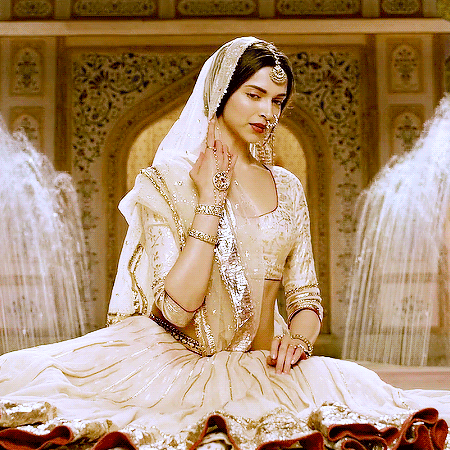
He instantly falls in love and realises what a MISTAKE he’s made. (It’s really all your own fault Inao. Minimal sympathy right now.)
I particularly enjoy the accounts where he is standing by Siyatra (Bussaba’s brother) when he spots her and he is so overcome with passion that he repeatedly kisses her brother, mistaking him for her. (Ok, Inao, you tell yourself that.)
The King of Joraka was ALSO on the way to help Daha but he arrived too late to be of any assistance. (Ugly and useless!)
Inao was now desperate to prevent Joraka’s marriage to Bussaba and the king of Daha was sympathetic but he had already given his word. (Unlike some, he doesn’t renege on a promise.)

Beach holiday filler episode time!
Ok, not really but the king of Daha and his wives and followers decide they simply must climb the mountain Wilismara to make offerings and worship to the Buddha image there.
Madewi, the king's second wife, suggests that Bussaba go and ask the image about her fate. Using lighted candles to decipher the Buddha’s message.
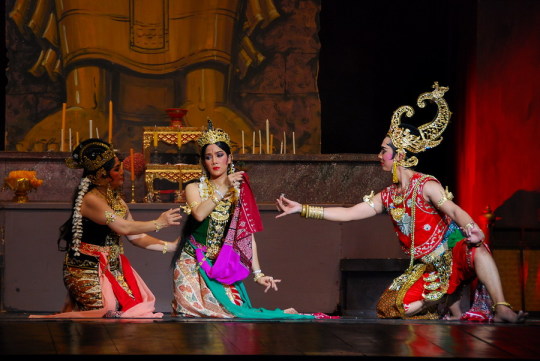
She lit three candles, one for Joraka on the left, herself in the middle and Inao on the right.
Bussaba asks the sacred image to extinguish the candle of the person who is not her soulmate.

Inao had secretly followed her and overheard this conversation and he plays a trick, pretending his voice is that of the god’s and persuading Bussaba and Madewi that Inao is her true soulmate.
He sends his follower Prasanta to drive out the bats and extinguish the candles and the darkness he finds and embraces Bussaba.

Madwei is furious about this (Bussaba less so,) and she argues with Inao who has the audacity to claim that he never refused Bussaba. (I think your dad has a letter suggesting otherwise buddy.)
Inao reluctantly hands Bussaba back to Madewi but asks Bussaba for a piece of cloth from her clothes, to hold when he is missing her. (smooth.)
What comes next is a cycle of adventures where the lovers are separated and have to search for each other before they are eventually reunited in a happy ending but they are not all told in the Lakhon Nai dance drama.
In many versions, Bussaba has to temporarily take on the disguise of a man and she has an active role in trying to help rescue Inao.
In a Javanese version, a demon takes her place and pretends to be the princess, called Candra Kirana in this story and the real princess appears at the court, disguised as a man to win back her man.
#man suang fic inspiration#apo nattawin#khem#thai culture#thai dance#thai literature#Indonesian culture#panji cycle#man suang meta#dance#traditional dance#thai dance drama
62 notes
·
View notes
Text
Cinta seperti penyair berdarah dingin yang pandai menorehkan luka. Rindu seperti sajak sederhana yang tak ada matinya.
Joko Pinurbo, Pacar Senja
#sastra#joko pinurbo#jokpin#puisi#quote#quotes#lit#literature#literary quotes#bahasa indonesia#indonesian#aesthetic#inspiring quotes#poem
5 notes
·
View notes
Text
“10초는 길어. 생각보다 영원에 가까운 시간이야. 나처럼 특수한 방식을 요구하는 사람에게 아무 이유도 없이, 소득도 없이 10초를 허락할 사람은 흔하지 않아. 내게 필요한 방식대로 자신의 시간을 기꺼이 사용할 사람은 별로 없어. 그게 10초든, 영원이든.”
황모과, 10초는 영원히
“10 detik itu lama. waktu yang jauh lebih dekat dengan keabadian dari yang kita pikirkan. tidak banyak orang yang mengizinkan 10 detik tanpa alasan dan tanpa keuntungan untuk orang yang meminta cara khusus seperti aku. tidak banyak orang yang menggunakan waktunya dengan sukarela sesuai cara yang aku butuhkan. baik itu 10 detik, maupun selamanya.”
hwang mogua, 10 seconds is forever
#hwang mogua#hwang mogwa#황모과#10초는 영원히#10 seconds is forever#10 seconds forever#한국 소설#korean novel#korean author#korean book#book#한인니 번역#번역 연습#korean indonesian#translations#translation practice#translated literature#practice#한국 도서#독서
0 notes